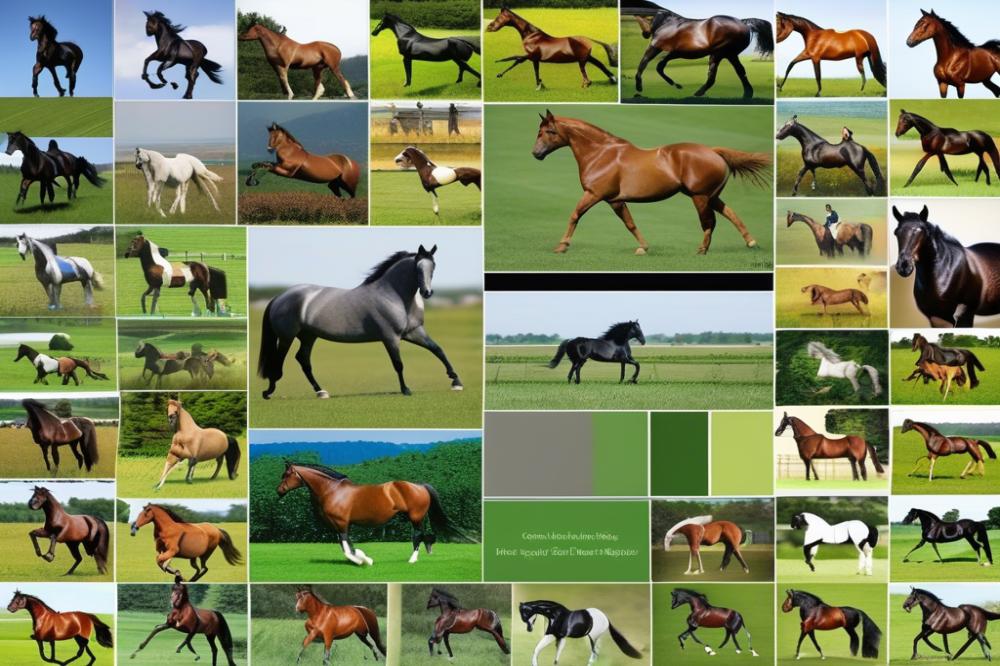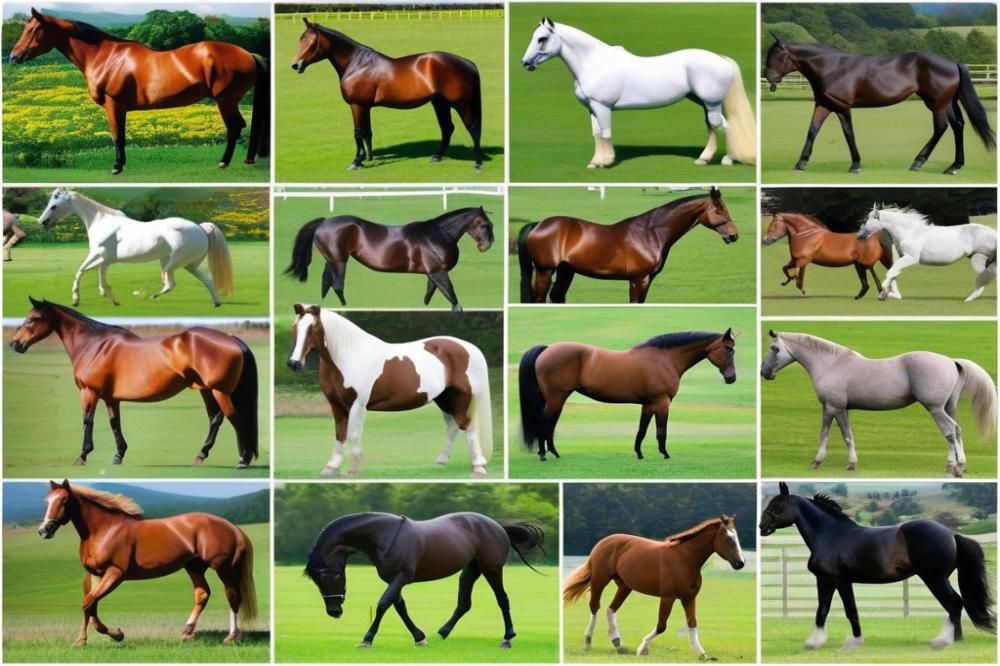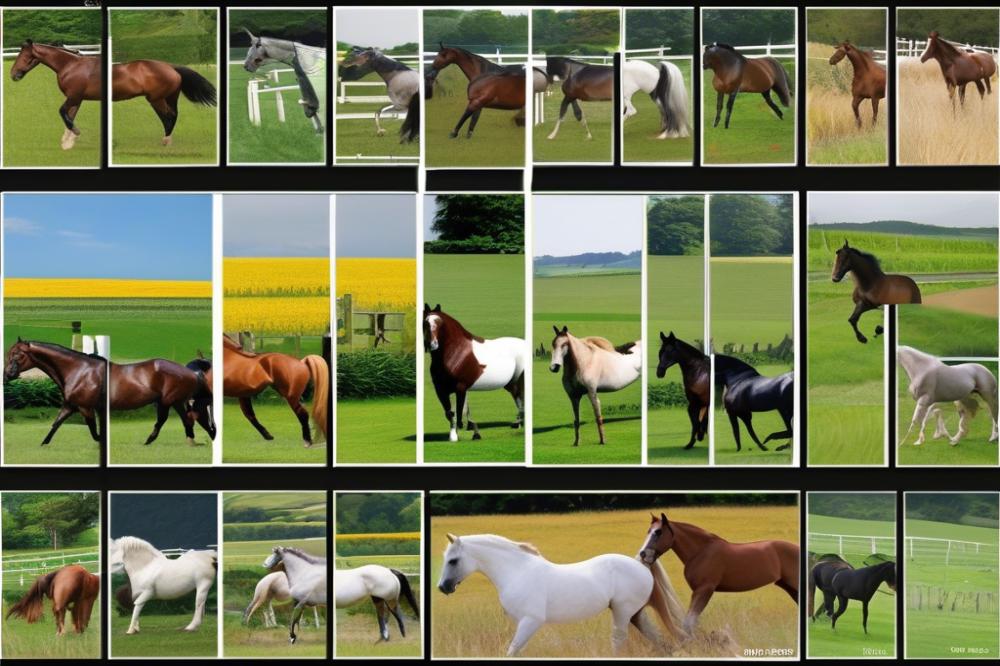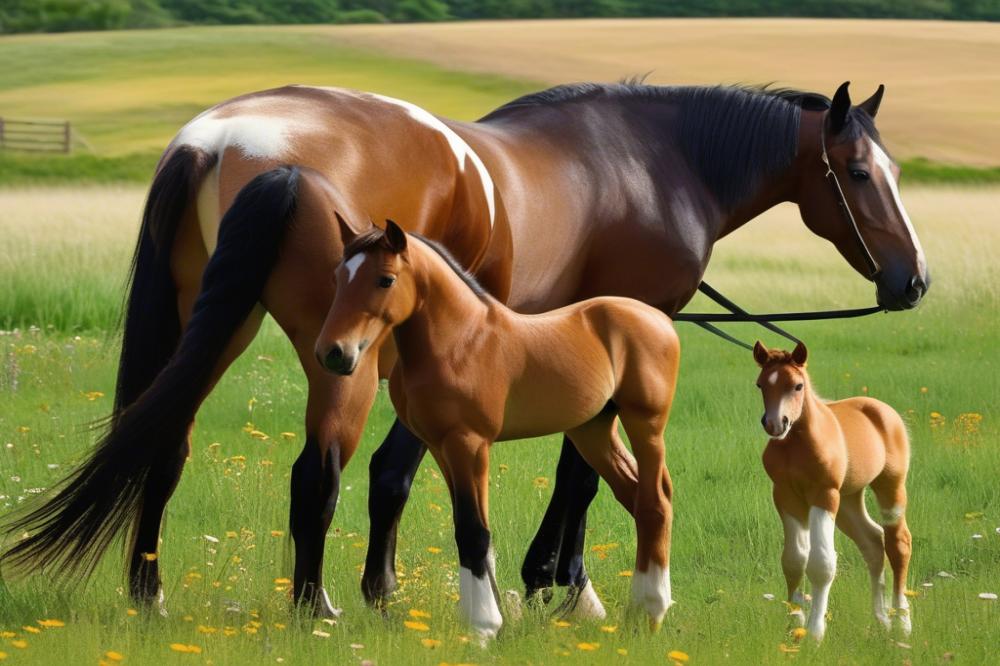Evaluating hybrid vigor in crossbred horses
hybrid vigor is a fascinating concept in genetics. It refers to the phenomenon where crossbred individuals exhibit improved traits compared to their parents. This improvement can be in physical characteristics, health, or overall performance. In horse breeding, harnessing this potential can lead to stronger, more capable animals.
crossbred horses result from the mixing of different breeds. This blending of genetic material can produce offspring with a diverse array of traits. Over the years, breeders have sought to combine desirable qualities from various breeds. They often aim for a horse that excels in areas such as speed, endurance, and temperament.
genetic diversity plays a crucial role in enhancing what is often referred to as hybrid vigor. When horses from distinct backgrounds are bred together, the offspring can inherit the best qualities from both sides. This can result in horses that are not only healthier but also more adaptable to various environments and tasks. The complexities of genetics make this process both exciting and valuable for breeders looking to improve their stock.
Understanding Hybrid Vigor

Hybrid vigor describes the improved or enhanced qualities seen in crossbred animals compared to their purebred parents. This phenomenon occurs because genetic variation can produce offspring with superior traits. Such traits often include increased growth rates, better reproductive performance, and improved health. These advantages may stem from combining the best attributes of both parent breeds. Consequently, horses resulting from this process can show remarkable capabilities in various areas.
Performance traits associated with hybrid vigor can vary widely. For instance, crossbred horses may excel in strength and endurance, making them suitable for diverse equestrian disciplines. Speed can also be a notable trait, especially in racing contexts. Moreover, temperament often improves, leading to calmer and more trainable animals. These benefits make hybrids appealing for breeders and buyers alike.
Several factors influence the level of hybrid vigor observed in equine genetics. First, the genetic diversity of the parent breeds plays a vital role. When two diverse breeds are crossed, the resulting offspring may inherit a broader gene pool. Environmental conditions also matter. A horse’s upbringing, diet, and training can affect its performance, even if it has a strong genetic background. Lastly, the specific traits being selected for during breeding can guide the success of hybrid vigor. Focused breeding practices can maximize the benefits obtained from crossbreeding.
Breeding Programs for Hybrid Vigor

Developing breeding programs requires careful planning. Focus on creating crossbreds that exhibit superior traits. Implementing successful strategies involves understanding the genetics behind horse breeding. Selecting high-quality sires is one of the most important steps. An optimal sire can enhance the desirable characteristics of the offspring.
Strategies for Implementing Effective Breeding Programs
A variety of approaches can contribute to successful breeding. First, conduct thorough research on different breeds. Knowledge of breed traits helps identify which combinations produce the best results. Establish clear goals for the breeding program. Whether it’s speed, temperament, or strength, goals guide every decision. Track the lineage of potential sires and mares to better anticipate the traits in future generations.
Importance of Sire Selection in Maximizing Hybrid Vigor
Choosing the right sire is crucial for producing top-quality foals. Look for sires with proven performance records. Genetic diversity plays a significant role in achieving strong offspring. Sires should have desirable traits as well as good health history. Data on their previous offspring can provide useful insights. This knowledge allows breeders to make informed decisions that enhance success rates.
Mare Evaluation and Its Role in Producing Crossbred Horses
Mare selection is just as essential as sire selection. Evaluate potential mares based on their confirmation, health, and performance. A mare’s background can greatly influence her foals. Good temperaments in both parents can lead to calmer offspring. Additionally, consider the mare’s reproductive history. Mares that produce healthy foals consistently are valuable assets in breeding programs. Always aim for balance when pairing mares and sires.
Implementing these strategies will pave the way for strong, competitive crossbred horses. Focus on selecting the best bloodlines. Through diligent planning and execution, hybrid vigor can be effectively harnessed.
Evaluating Hybrid Vigor in performance traits

Identifying Key performance traits Indicative of Hybrid Vigor
Understanding performance traits is essential when studying hybrid vigor in crossbred horses. Certain traits stand out as indicators of enhanced abilities. Speed, stamina, and agility are notable examples. Breeders often look for these features in the offspring of two different breeds. Improved aspects can lead to more competitive racing or better working horses. Also, temperament plays a crucial role. Horses that combine the best traits from both parent breeds can display a more balanced demeanor. Each of these traits contributes to a horse’s overall success.
Role of Phenotype Expression in Assessing Hybrid Vigor
Phenotype expression is the visible result of genetic composition. It shows how genes interact with the environment. This expression helps researchers understand how hybrid vigor manifests in animals. Observing physical characteristics allows breeders to recognize desirable features. Furthermore, behaviors linked to genetics can highlight hybrid advantages. A horse’s ability to excel in specific tasks may arise from favorable genetic combinations. It’s essential to record these observations during competitions or training. Overall, phenotype provides tangible evidence of genetic potential.
Heritability of Traits and Their Impact on Breeding Outcomes
Heritability refers to the proportion of trait variation that can be passed from parents to offspring. This concept crucially affects breeding decisions. Traits with high heritability can significantly influence the success of a crossbred horse. Breeders should prioritize these traits for better results. Nevertheless, not all traits are equal in their capacity to be inherited. Some traits, like size, might be more easily transferred than others, such as adaptability. It’s important to evaluate both the heritable and non-heritable traits when planning breeding strategies. Careful consideration ensures that the offspring meet desired performance levels.
Health Benefits and Conformation Considerations
Exploration of health benefits linked to hybrid vigor
Crossbred horses often show health improvements compared to their purebred counterparts. These benefits can arise from a broader gene pool. Genetic diversity can lead to a reduction in inherited health problems. Breeders often notice that these horses have stronger immune systems. This means they may be less prone to common illnesses. Additionally, crossbreds tend to have better muscle, bone, and joint structures. These physical traits enable them to recover from injuries more effectively.
Analysis of horse conformation in relation to hybrid vigor
Conformation plays a crucial role in the overall health of horses. It refers to the horse’s physical structure and shape. A well-formed horse is often better equipped for various activities. Hybrid vigor can contribute positively to conformation. When different breeds are crossed, desirable traits may emerge. These traits can include improved balance, strength, and flexibility. Such characteristics can lead to a more athletic animal. Breeders should examine conformation closely when selecting horses for their programs.
Impact of conformation on performance and longevity
Performance levels can greatly depend on a horse’s conformation. Horses with ideal build tend to have better movement and endurance. This can enhance their abilities in events like racing or jumping. Longevity is also influenced by how well a horse is put together. Stronger conformation often correlates with a longer working life. Horses that are built well can sustain heavy workloads without injury. Thus, selecting for sound structure is key in breeding programs. The combination of these factors can lead to successful outcomes for both horse and rider.
Practical Applications and Case Studies
Crossbreeding can offer significant benefits for horse breeders. Many have discovered how combining different breeds can lead to better overall health and performance. Diverse genetic backgrounds contribute to stronger offspring. These animals often show greater resilience and fewer hereditary issues.
One example includes the crossbreeding of Quarter Horses and Thoroughbreds. This mix tends to produce horses that excel in both speed and agility. Breeders have reported them winning various competitions, showing off how effective the combination can be. Performance metrics often improve, and owners find they can compete at higher levels.
Another notable case emerges from the combination of Arabian and Appaloosa breeds. This pairing often produces horses that are not only visually striking but also possess an excellent stamina. Many riders rave about their endurance capabilities on long trails. This versatility makes them desirable for both recreational riders and serious equestrians.
Assessments of various breeding programs reveal critical lessons. Industry stakeholders emphasize the importance of understanding genetic traits. Taking the time to study the lineage of each parent can lead to better predictions about offspring. Knowledge about strengths and weaknesses aids breeders in making informed decisions.
Moreover, maintaining detailed records of each breeding outcome proves beneficial. Many successful breeders keep track of performance data, health records, and behavioral traits. Such practices contribute to continuous improvement in breeding strategies. Over time, these insights help refine the selection process.
Caring for the animals also requires thoughtful management strategies. Many breeders focus on nutrition and training to maximize the advantages gained from crossbreeding. Careful attention to these factors can enhance the results further. Ultimately, a holistic approach is critical in reaching breeding goals.
Final Thoughts on Crossbred Horses and Hybrid Vigor
Summary of Key Points Discussed
Crossbred horses offer several notable advantages, particularly through the benefits of hybrid vigor. This phenomenon arises from mating individuals from different breeds. Breeders can observe improved health, stamina, and overall performance traits in these horses. The increased genetic diversity often leads to offspring that outperform their parents in various aspects. We examined how combining traits from two or more breeds can yield horses that are not just more resilient but also more versatile.
Encouragement for Breeders
Breeders should think carefully about incorporating hybrid vigor into their breeding programs. This strategy can lead to numerous benefits, such as enhanced athletic ability and longevity. Crossbred horses can fill niche roles in disciplines like racing, work, or pleasure riding. By choosing the right breeds to cross, breeders will likely tap into a broader range of desirable qualities. Focus on the potential for improvement should guide their selections.
Considering the benefits of hybrid vigor can significantly enhance breeding outcomes. As more people recognize its value, the future of crossbred horses looks promising. Embracing this genetic diversity will not only help individual horses but can also elevate the overall quality of breeding stock. There’s great potential here, and it’s an exciting time for the industry. Breeding with this mindset can lead to remarkable horses that thrive in various environments.



